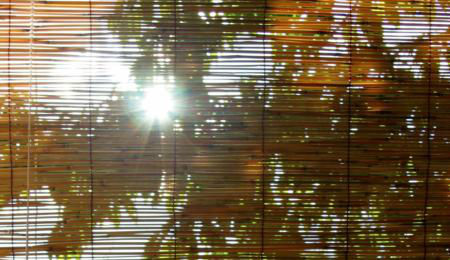Francis, filtered
About a year ago, I suggested to one of the top editors of a major American newspaper that his journal's coverage of things papal left something to be desired, as it seemed based on the assumption that Pope Francis was some kind of radical wild-man, eager to toss into the garbage bin of history all those aspects of Catholic faith and practice that mainstream western culture finds distasteful. My friend replied, in so many words, look, you know how these media narratives are: they're like bamboo. Once they get started, there's no stopping them. They just keep growing.
Alas, he was right. And while there's been a lot of talk about the "Francis Effect," it's worth pondering, on the Holy Father's 78th birthday, the Francis Filtration.
The Francis Filtration began in earnest during the impromptu press conference in the papal plane while the pope was en route home from World Youth Day 2013 in Rio de Janeiro. That was the presser that produced the single-most quoted line of the pontificate: "Who am I to judge?" But as Cardinal Francis George pointed out in a pre-retirement interview with John Allen, that sound-bite "has been very misused... because he was talking about someone who has already asked for mercy and been given absolution...That's entirely different than talking [about] someone who demands acceptance rather than asking for forgiveness." (For the record, the entire quote, which is almost never cited, was "Who am I to judge them if they're seeking the Lord in good faith?")
But as my journalist-friend suggested, the "bamboo" shoot of "Who am I to judge?" has continued to grow, until it's now a virtual bamboo curtain. And what's being filtered out? All the things the pope says that don't fit the now-established "narrative" of "humane, progressive pope vs. meanie reactionary bishops and hidebound Catholic traditionalists."
Things like what?
Well, things like the pope's passionate defense of marriage as the stable union of a man and a woman, which he underscored in an address to the Schoenstatt movement right after Synod 2014, and in his keynote address to a November interreligious conference at the Vatican on the crisis of marriage in the 21st century.
And things like the pope's defense of the Gospel of Life, a persistent theme in Francis's November address to the European Parliament. The press reports I read focused on Francis' concerns for immigrants and the unemployed. Fair enough; that was certainly in the text. But what about the Holy Father's defense of those whom indifference condemns to loneliness or death, "as in the case of the terminally ill, the elderly who are abandoned or uncared for, and children who are killed in the womb?" What about his insistence that "Europe," past, present, and future, makes no sense without Christianity? What about his condemnation of those who subject Christians "to barbaric acts of violence," and his plea for support for those Christians who are "evicted from their homes, and native lands, sold as slaves, killed, beheaded, crucified or burned alive, under the shameful and complicit silence of so many?" You didn't read much about that, did you?
Nor did you read (unless you read the pope's text himself) that Francis, having made a plea for environmental stewardship, went on to "emphasize" (his word) that "along with an environmental ecology, there is also need of a human ecology which consists in respect for the person."
Another aspect of Pope Francis' preaching that's been too often filtered out of the coverage of his pontificate involves (if you'll pardon the term) demonology. No pope in decades has so regularly referred to Satan as Pope Francis. The Evil One is no abstraction to this pontiff, nor does he think of "satanic" as a rhetorical intensifier to underscore one's disapproval of, say, Hitler. Satan and his minions are very real to Pope Francis; it would be interesting for an enterprising reporter to draw him out on the subject in one of those freewheeling papal press conferences.
The Francis Filter may be bamboo. But if it keeps growing, so will the distortions that bamboo curtain creates.
- George Weigel is Distinguished Senior Fellow of the Ethics and Public Policy Center in Washington, D.C.



















